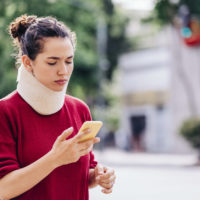Understanding Negligence in a Florida Personal Injury Case

Sustaining injuries and property damage as the result of another person’s negligence can be downright devastating. The good news is that laws exist to keep personal injury victims protected from extraordinary financial harm. By filing a Florida personal injury claim, you may be able to recoup your losses and obtain compensation for all related pain and suffering. However, the first step in this process is ensuring that your claim is a valid one. The following is everything you need to know about negligence in any Florida personal injury case.
Duty of Care
The privilege of owning and operating property comes with specific responsibilities that are collectively known as an entity’s “duty of care.” This is true whether you’re a homeowner, a business owner, or a driver. In each of these and other instances, a person’s duty of care requires them to take reasonable steps to prevent others from being harmed. For instance, company owners must have plans and processes for ensuring the timely clean-up of onsite spills. This way, employees and guests won’t sustain slip-and-fall injuries while on the company premises. Homeowners should make every effort to shovel and salt their walkways and other paved surfaces during times of snowfall to prevent those walking across these surfaces from being harmed. In like fashion, motorists should adhere to posted speed limits, take good care of their vehicles, and avoid driving while intoxicated, distracted, or tired.
When Duty of Care Is Breached
Negligence is a person or company’s failure to fulfill their duty of care. Drivers might speed, overtake, or otherwise drive erratically or aggressively. Residential property owners may fail to trim weak or dying tree limbs and leave them to fall on an unsuspecting party or their personal property. Ownership and action always assign some form of responsibility for keeping others safe. Even when riding a bicycle, you have an obligation to follow rules, avoid unnecessary risks, and ensure that you don’t crash into people or their things.
Breaching duty of care can result in serious harm. In some instances, it can even result in loss of life. Falling tree limbs, car crashes, and slip and fall accidents can leave accident victims with broken bones, traumatic brain injury (TBI), concussions, paralysis, and more. When recovery is possible, accident victims additionally accrue massive medical bills and miss time at work. There’s also the potential for property damage and property loss to consider. Accidents can result in the loss of working vehicles, damaged homes, and other items being rendered valueless and unusable. Personal injury claims are an opportunity for accident victims to recoup their losses, and to receive compensation for the pain and suffering they’ve incurred due to breached duty of care.
How Negligence and Failed Duty of Care Can Change Lives
Failed duty of care can also lead to serious psychological harm. Many people who survive major injury events suffer from post-traumatic stress disorder (PTSD). After a car crash, excessive fear of driving could leave an accident victim with limited options for transportation. People can also contend with extended bouts of depression, severe general anxiety, and grief. Personal injury claims often account for the psychological effects of traumatic injury events. Seemingly small oversights on the part of property owners and business owners can change lives forever.
Assigning Fault and Calculating the Value of the Losses and Damages
In Florida, there are four primary points that every accident victim must prove. These are:
- A duty of care was owed to the accident victim
- The at-fault party breached or neglected this duty of care
- The breach of care or negligence was the direct cause of the victim’s personal injuries
- Losses and damages were suffered as a result
In some instances, even though negligence existed, accident victims may be deemed partially or fully responsible for their own losses and damages. For instance, although a property owner may have failed to shovel a portion of their sidewalk, walkways, or other paved surfaces, if the accident victim was running or engaging in other high-risk activities without exhibiting care for their own well-being, the assignment of fault could be complicated. In instances such as these, expert witnesses may be used to determine the exact cause of a person’s harm. More importantly, the likelihood of victims obtaining full compensation is somewhat diminished.
The larger a potential settlement is, the more aggressive insurance companies will be in their efforts to avoid fault. Moreover, when accident victims attempt to represent themselves, there are areas of loss that they frequently overlook. Insurance companies routinely pressure accident victims to accept early settlement offers, and often long before all latent injuries are fully known. As such, it is always in the best interests of victims to:
- Focus on healing
- Consult with multiple medical practitioners to learn the full extent of their injuries
- Carefully consider all damages including psychological harm and lost professional opportunities
Sustaining injuries as the result of someone else’s negligence is guaranteed to have an impact on your life. Filing a personal injury claim is the absolute best way to limit this impact. With fair compensation, you can relieve yourself of extraordinary financial stress, and you can access and receive all the medical care you need.
Contact the personal injury lawyers at Pardy& Rodriguez for a free consultation. We can answer any questions you have and work to get you the compensation you deserve for your injuries.


